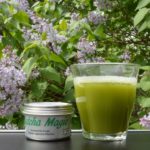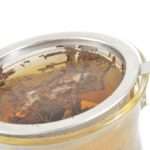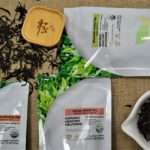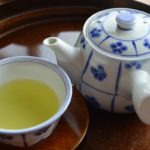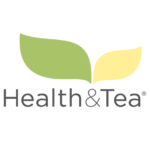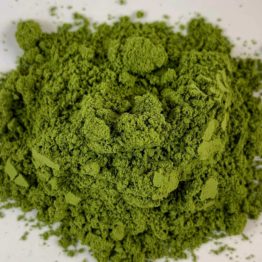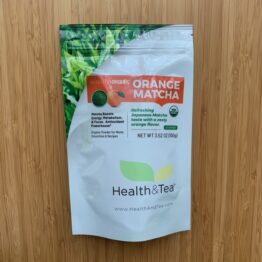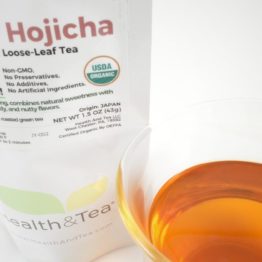In recent years, the research on how tea may benefit cancer patients has been intensively studied because tea catechins are potent antioxidants. For example, a growing body of tea research using mice and vitro approaches has shown promising results that tea catechins (a key element in tea flavonoids) may act against cancers via inhibition of cancer development and elimination of cancer cells [1,2].
Many researchers worldwide have been studying for associations between tea drinkers and risks of breast, lung, prostate, gastric, and other cancers. Despite the promising results of animal and vitro studies, human studies about tea provide some data for its preventative effect on prostate and breast cancers, but it has not yet proven sufficient for preventing other cancers [3]. Below is the information from recent tea research conducted to investigate prostate and breast cancer.
Tea and Prostate cancer
 Researchers from the School of Medicine at the University of Wisconsin in Madison initiated a program to study the chemopreventive effect in green tea. Based on their animal models and several clinic trials, they suggest that green tea may have a distinct role as a chemopreventive agent against prostate cancer [4].
Researchers from the School of Medicine at the University of Wisconsin in Madison initiated a program to study the chemopreventive effect in green tea. Based on their animal models and several clinic trials, they suggest that green tea may have a distinct role as a chemopreventive agent against prostate cancer [4].
Similar results were found in humans by researchers from the University of Parma in Italy [5]. High-grade prostate intraepithelial neoplasia (PIN) is likely to precede the development of prostate cancer. These researchers followed 200 individuals with high-grade prostate intraepithelial neoplasia (PIN) to determine their risks of prostate cancer. One group received green tea catechins daily, while the other group received a placebo. After one year, only 3% of the patients in the green tea catechin treatment group developed prostate cancer, whereas the rate of cancer development in the placebo group was 30%. No adverse effects were associated with the treatment.
In 1990 and 1993, a group of Japanese researchers at the National Cancer Center in Tokyo recruited 49,920 men aged 40-69 years who reported their green tea consumption habit as baseline. These subjects were followed until the end of 2004. During this time, 404 men were newly diagnosed with prostate cancer. They found that the relative risk was significantly lower for men drinking five or more cups per day in comparison with those who consumed less than one cup per day. These results suggest that green tea may be associated with a decreased risk of advanced prostate cancer [6].
Researchers in China and Austria also found similar results in 2007 [7]. They recruited 130 prostate cancer patients and 274 patients without prostate cancer from eight hospitals in 2001 and 2002. These patients were over 45 years old and reported their information on tea and dietary intake in a structured questionnaire. The data showed that prostate cancer risk was significantly reduced with increased consumption of green tea. This study suggests that habitual tea drinking could lead to a reduced risk of prostate cancer in Chinese men.
Tea and Breast Cancer
 From 1995 until1998, several researchers at the University of Southern California examined green tea and the risk of breast cancer in Asian Americans, including Chinese, Japanese, and Filipino women in Los Angeles [8]. They recruited 501 breast cancer patients and 594 participants without breast cancer. All subjects were interviewed and reported information about menstrual and reproductive facts, dietary habits (including tea consumption), and lifestyles. After adjusting other factors, the results showed that green tea drinkers (more than 86 ml/day, about 3 oz.) had a significantly reduced risk of breast cancer, compared to non-drinkers. The study suggests the potential role of green tea intake in relation to breast cancer risk in Asian-American women.
From 1995 until1998, several researchers at the University of Southern California examined green tea and the risk of breast cancer in Asian Americans, including Chinese, Japanese, and Filipino women in Los Angeles [8]. They recruited 501 breast cancer patients and 594 participants without breast cancer. All subjects were interviewed and reported information about menstrual and reproductive facts, dietary habits (including tea consumption), and lifestyles. After adjusting other factors, the results showed that green tea drinkers (more than 86 ml/day, about 3 oz.) had a significantly reduced risk of breast cancer, compared to non-drinkers. The study suggests the potential role of green tea intake in relation to breast cancer risk in Asian-American women.
A group of researchers at the Vanderbilt University School of Medicine examined whether regular green tea consumption was associated with breast cancer risk. They recruited 3,454 breast cancer patients and 3,474 patients without breast cancer. The participants were aged 20 to 74 years old and were located in Shanghai, China during the 1996–2005 time period. All participants reported their green tea consumption habits. The results showed that regular tea drinkers had a slightly decreased risk for breast cancer, compared to non-tea drinkers. Among premenopausal women, participants with more years of green tea drinking also had a reduced risk for breast cancer [9].
Two researchers from Harvard School conducted a meta-analysis study for breast cancer risk and recurrence [10]. They examined 5,617 cases from studies published between 1998 and 2009. The results showed that increased green tea consumption (more than three cups a day) was inversely associated with breast cancer recurrence.
In other words, green tea consumption may reduce the possibility of the recurrence of breast cancer.
References:
- Khan, N and Mukhtar, H., 2010, Green Tea Catechins: Anticancer Effects and Molecular Targets, in Fraga, C.G. ed. Plant Phenolics and Human Health: Biochemistry, Nutrition, and Pharmacology, John Wiley & Son
- Weisburger, J. H., 2006, Tea is a Health-Promoting Beverage in Lowering the Risk of Premature Killing Chronic Diseases: a Review, in Jain, N.K., Siddiqi, M., and Weisburger, J. H., ed., Protective Effects of Tea on Human Health, CABI, Oxfordshire OX, UK
- Boehm K, Borrelli F, Ernst E, Habacher G, Hung SK, Milazzo S, Horneber M. Green tea (Camellia sinensis) for the prevention of cancer. Cochrane Database of Systematic Reviews 2009, Issue 3. [Abstract]
- Johnson JJ, Bailey HH, Mukhtar H., “Green tea polyphenols for prostate cancer chemoprevention: a translational perspective.” Phytomedicine. 2010 Jan;17(1):3-13. [Abstract]
- Bettuzzi S, Brausi M, Rizzi F, Castagnetti G, Peracchia G, Corti A., Chemoprevention of human prostate cancer by oral administration of green tea catechins in volunteers with high-grade prostate intraepithelial neoplasia: a preliminary report from a one-year proof-of-principle study”. Cancer Res 2006; 66:1234–1240 [Abstract]
- Kurahashi N, Sasazuki S, Iwasaki M, Inoue M, Tsugane S, Green tea consumption and prostate cancer risk in Japanese men: a prospective study, American Journal of Epidemiology, 2008 Jan 1;167(1):71-7. [Abstract]
- Jian, L., Lee,A.H., and Binns, C. W., 2007, Tea and lycopene protect against prostate cancer, Asia Pac J Clin Nutr 2007;16 (Suppl 1):453-457 [Abstract]
- Wu AH, Yu MC, Tseng CC, Hankin J, Pike MC., Green tea and risk of breast cancer in Asian Americans, International Journal of Cancer2003 Sep 10;106(4):574-9. [Abstract]
- Martha J. Shrubsole,Wei Lu, Zhi Chen, Xiao Ou Shu,Ying Zheng, Qi Dai, Qiuyin Cai, Kai Gu, Zhi Xian Ruan, Yu-Tang Gao, and Wei Zheng , “Drinking Green Tea Modestly Reduces Breast Cancer Risk,” J Nutr. 2009 February; 139(2): 310–316 [Abstract]
- Ogunleye AA, Xue F, Michels KB. , “Green tea consumption and breast cancer risk or recurrence: a meta-analysis.” Breast Cancer Res Treat. 2010 Jan;119(2):477-84. [Abstract]
